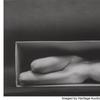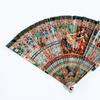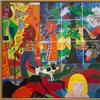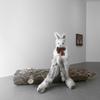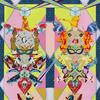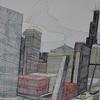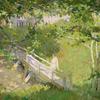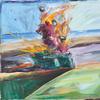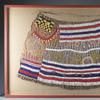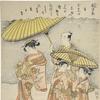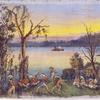California Noir: Modernist Works of Matthew Barnes Are Reexamined in New Show
- OCEANSIDE, California
- /
- April 07, 2019
Oceanside Museum of Art has on view an exhibition (through May 12) of 17 works by Matthew Barnes (1880-1951), a California artist who was once widely hailed for his moody modernist nocturnes.
“One of his central themes is mankind’s relationship with nature, that life was a struggle,” said Susan Landauer, the exhibition’s curator, who researched the artist’s life for a catalog that accompanies the show, to San Diego Union-Tribune. “He captures moments before things happen like a big storm. These aren’t narratives, they capture a mood.”
Once San Francisco’s best-known modernist and avidly collected by East Coast patrons, Matthew Barnes is enjoying recognition again after languishing in obscurity since his death in 1951 thanks to the current vogue for dark Surrealism. Barnes approached painting as a means of personal expression and retreat from everyday life. He never received any formal training or education and paid little attention to the prevailing artistic formulae. While this caused many patrons and critics at the time to overlook his paintings, such is not the case with Del Mar residents Bram and Sandra Dijkstra who have amassed the largest private collection of Barnes’ work. According to Bram, “What Barnes was after was to acknowledge the simplest, and therefore also the most profound truth of human existence, a truth most of us try to hide from all our lives—that ultimately each of us must face infinity alone…The beauties of form and color should not blind us to the inevitability of our existential isolation.” Sandra adds, “Living with his powerful paintings, I marvel at the arresting ways he takes on this elusive and difficult subject.”
Oceanside Museum of Art (OMA) Executive Director Maria Mingalone was equally moved by the artist’s work, and inspiration for this exhibition struck when she saw the Dijkstra collection. “I am excited about the role OMA will play in adding to the historical canon of California art by presenting this exhibition and bringing to the public the work of a unique, yet forgotten artist,” she notes. “It’s all the more noteworthy since this exhibition will travel to the Monterrey Museum of Art.”
The seductive quality of Barnes’ work intrigued nationally-known curator Susan Landauer who first discovered Barnes while conducting research for her dissertation on the San Francisco School of Abstract Expressionism in the late 1980s, and she never forgot his distinctive art. “I am excited about the opportunity to finally give the artist the recognition he has long deserved,” says Landauer of being asked by OMA to organize this exhibition. “His work struck me as evocative of the angst of the postwar era, with its swirling movement and solitary figures swept in lonely landscapes.”
In the collections of MOMA and SFMOMA, Barnes’ work is shaped in part by his traumatic childhood in Scotland and its folklore that instilled in him a sense of the dark side of life. These influences would find their way into his art. The loss of his father forced him to quit school and work the night shift to support his mother. As he later recounted, working at night proved decisive for his appreciation of the nocturnal landscape: “Across the banks from the factory was a superb view of a typical lowland landscape… I watched the magnificence of the ever-changing sky [and the] lights that bobbed through the darkness from the lamps that the coal miners attached to their caps before leaving home to start walking to the deep coal pits.”
A catalog with an essay by Landauer will accompany this historic first solo museum exhibition of Barnes’ work since 1952, showcasing him as the original master of California “noir,” with shadowy and often macabre landscapes representing the very antithesis of the state’s penchant for sunshine.

